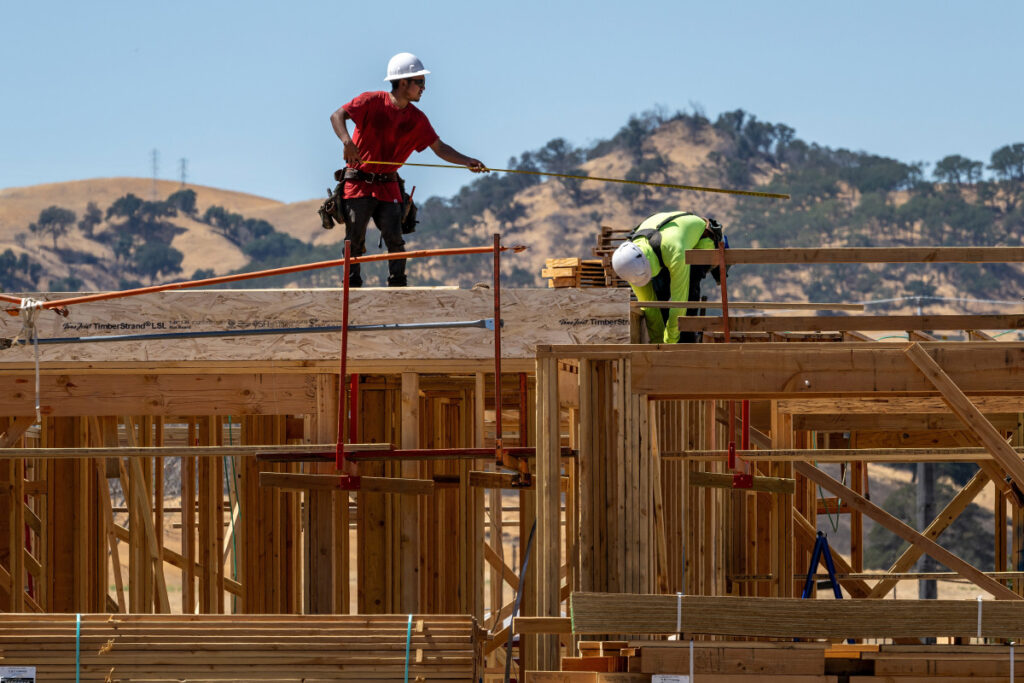Normally, in the week after the monthly jobs report is released, the business and the economy chug along with the economic reports grabbing modest headlines.
Inflation, however, has been a big concern since the end of the Covid-19 pandemic, and two really important inflation reports land on Wednesday and Thursday as well as the weekly report on jobless claims hitting as well.
💵💰Don’t miss the move: Subscribe to TheStreet’s free daily newsletter 💰💵
Only, this will be a loud week in Washington mostly because there will be noisy debates over bigger, very political issues.
Futures trading indicates things will chug along with a decent open on Monday. So, not to worry: Nvidia NVDA, Tesla TSLA and, maybe, McDonald’s MCD will attract a lot of chatter.
Related: Fed interest rate cuts hinge on looming inflation report
A bit of good news came late last week because of the weak jobs report. Bond yields fell, and mortgage rates fell below 6.5%, the lowest level since the fall of 2024 that could give housing a boost.
Homebuilding stocks jumped in response.
First up: The Fed interviews
Treasury Secretary Scott Bessent was to have started interviews Friday with candidates to replace Federal Reserve Chairman Jerome Powell whose term expires next May.
One must be living under a rock to know how much Donald Trump dislikes Powell. Trump wants interest rates cut several months ago. Until August, Powell and the Fed were far more interested in inflation control.
There are 11 candidates for the jobs, with that three confirmed candidates for the job — by Trump on Friday.
- Christopher Waller, a Fed governor who wants rates cut.
- Kevin Hassett, director of the President’s National Economic Council.
- Kevin Warsh, a former Fed governor who was deeply involved in the Fed’s efforts to shore up the economy in the 2008-2009 financial crisis.
Another name talked about is Michelle Bowman, the Fed vice chair in charge of bank supervision. She is a member of a family that’s owned a small Kansas bank since its founding in 1882.
She and the others are advocates of lighter bank regulation.
Related: Iconic Costco hot dog deal turns 40: what it should cost today
All of the candidates, in theory, would regard no bank as too big to fail.
Bessent himself doesn’t want the Fed job; he has emerged as the dominant player on economics in the Trump Administration. And, as has become clear, the Administration is injecting itself more directly into the economy workings.
The Treasury Secretary also wants major changes in how the Fed operates, mostly to bring the Fed closer to heel with the Administration’s thinking.
More Economic Analysis:
- Fed official sends bold 5-word message on September rate cuts
- New inflation report may have major impact on your wallet
- Surprising GDP report resets backdrop for stocks
Bloomberg/Getty Images
Next up: the two inflation reports
The Producer Price Index. It comes out Wednesday. It measures prices received by businesses. It should show a 3.3% year-over-year increase. Core PPI is expected at 2.8% year over year. It strips out food and energy costs.
The Consumer Price Index. This is he headline grabber. This is a measure of what consumers are paying for a set list of goods and services. The consensus estimate is that the index will be up 2.9% year over year and 3.1% year over year when food and energy taken out.
In the the late 1970s and early 1980s, it reached as high as 13.5%. It hit 9%-plus during the post-Pandemic recovery and forced the Fed to raise rates to curb it.
Related: Forget rate cuts: Veteran analyst rings alarm on S&P 500
Here we stop to note that the year-over-year increases of both indexes would be higher than the Fed’s target of 2% annual inflation. The target itself is not exactly etched in stone, and many believe it is simply too rigid.
Moreover, many conservative economists believe the inflation bouts in the 1970s and 1980s, in the aftermath of the 2008-09 crisis and after the Pandemic were due to Fed moves to flood the economy with too much cash.
There is dispute on whether the Fed was responsible. In 2008-2009 crisis, its goal was to stave off economic collapse, and it mostly worked.
In the Pandemic case, but prices shot up because there was so much global demand for goods and services when the crisis subsided.
Related: After jobs report, Street hopes for good news from Oracle, Adobe, Kroger
Three more reports to watch
National Association of Indetrupendent Business Confidence Index for August. This measures how small businesses view the economy. The July report cited problems getting labor. It may come up in August. Also, consumer spending has been showing signs of contraction.
Initial Jobless Claims, from the Bureau of Labor Statistics. This is has been rising in recent months, and is a decent economic indicator.
Michigan Consumer Sentiment Index, from the University of Michigan. This looks at how Americans view the economy. It slumped in April after financial market slumped. It recovered quickly in the stock-market boom, but has slumped again.
A last note: Housing
Everyone who has looked at buying a house — a key American dream — knows prices are sky-high in many markets, locking many would be buyers out of the market.
Bessent has made noises the Trump Administration would declare a housing emergency, maybe in the fall. It’s not clear what that specific ideas would be included. But look for it.




